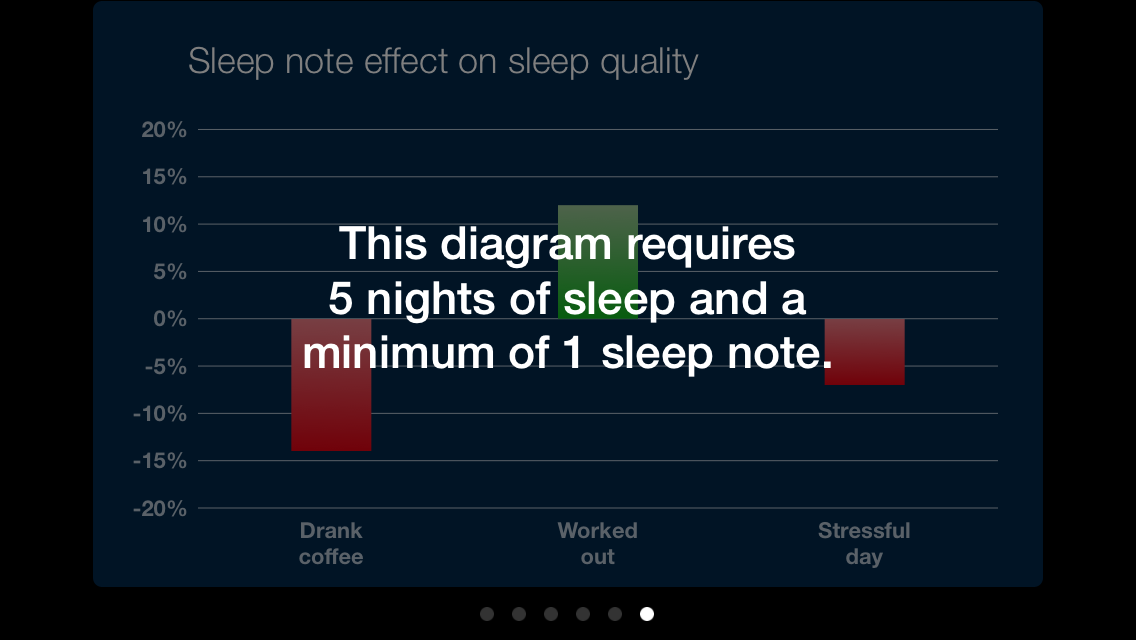Although it is probably more qualified to be listed under the "Health" apps category, the idea behind Sleep Cycle definitely has the potential to develop a more productive lifestyle. Why? Because it deals with sleep patterns and waking up at the time that is literally best for your body. If I were to sum this app review up, I would say this is an AWESOME APP. Let's talk about what makes it awesome.
Sleep Cycle works by using the iPhone's built in accelerometer to monitor and track movement during the night in order to determine which sleep cycle you are in. After one night you are able to identify your sleep quality for the night and the total time in bed. Now, that by itself would be pretty awesome.
However, it does more!
As you start to log more nights of sleep in consistently, you the app starts to give you graphs of the different statistics such as:
Time in Bed

Sleep Quality
Went to Bed
Time in Bed Per Day of the Week
Sleep Quality Per Day of the Week
Sleep Notes
The Alarm
The alarm feature is one feature that the app really emphasizes. Because the app is able to monitor sleep patterns, it is able to determine what the best time to wake up for the person using the app. Personally, I typically feel a lot better when the app wakes me up because it feels more of a natural wake up. The only problem is that the alarm is a little too soft to hear for some people.
The app wakes you up in between two times of half hour increments, whichever time is most natural based on your sleep patterns.
Sustainability:
Sleep cycle has been out for several years now, the copyright being 2010. Since then it has been featured various times with publications and media outlets such as CNN, Wired, The Guardian, The Wall Street Journal, BBC, The New York Times. It has a five star rating for the current version with 2,308 ratings and a four and half star rating for all version with 63,581 ratings. From what I've seen that is pretty impressive. I predict that the app will continue to receive updates (the last being January of this year) and get better. It already has a pretty loyal following, the few people that I know who have used it only say positive things about it.
Usability:
The app is pretty straightforward. It asks you what time you want to wake up (as shown above) and all you need to do is place it on the side of your bed (typically under your covers) near where you sleep. You do have to leave the phone plugged in to the charger all night, but it's probably not anything we don't do anyway. The only problem I ran into was trying to find how to use the "notes" feature, which allows you to keep track of what you did right before going to bed, or even what you had done that day that might be relevant to your sleep quality.
Value:
The app does cost $0.99 to buy and download, but it is well worth the small price. The actual site mentions that similar alarm clocks that can monitor the body's natural sleep cycles cost about $200. Personally, I think it was a good investment for what it does, and it's something that I use almost everyday.
A few drawbacks that have been mentioned is:
- You have to keep it plugged in all night, or it will drain you battery
- You do have to bring it into your room, meaning possible disturbance from calls and texts
- The accelerometer picks up movements of everything, including bed partners and pets
- Sometimes the alarm will wake you up earlier than you had wanted to because of the 30 minute increments
(I found these concerns here)
Conclusion:
I have enjoyed this app very much, although sometimes I forget to use it. However, the app doesn't punish you for missing days. Understanding my sleep patterns has been interesting and it has helped me be more aware of what I might be able to do to get better sleep. Overall, I feel that it has been a very good investment for how much it costs and for what it has the ability to do.








